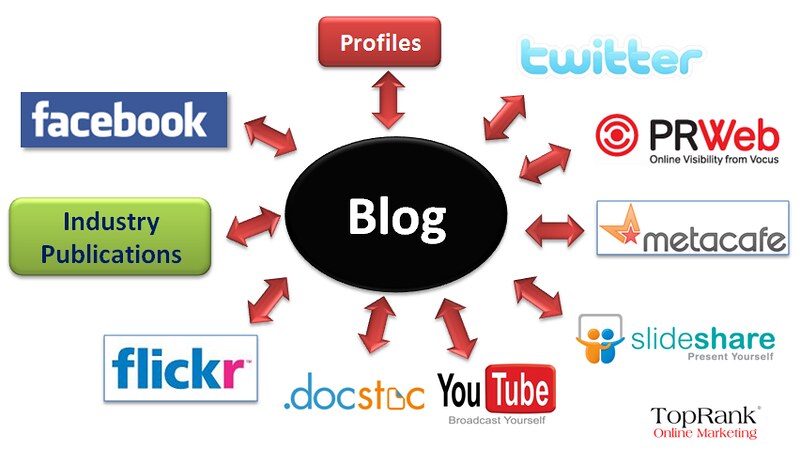
Having an online presence is no longer optional for businesses. As consumers increasingly rely on the internet for shopping, research, and social interaction, companies that fail to embrace digital marketing risk being overshadowed by competitors. However, while many businesses recognize the need for digital marketing, they often underestimate the complexity of executing an effective strategy.
Many companies struggle to understand if their digital marketing investments are yielding tangible returns, leading to hesitations in hiring marketing professionals. In reality, bringing on a digital marketing expert can transform your business, enabling you to optimize your resources, improve customer engagement, and drive revenue growth. In this article, we will explore why hiring a digital marketing expert is crucial, the benefits they offer, and why it might be the smartest decision you make for your business.
- The Power of Effective Calls-to-Action (CTAs)
One of the most powerful tools in a digital marketer’s arsenal is the call-to-action (CTA). CTAs are designed to prompt website visitors to take a specific action, whether it’s signing up for a newsletter, making a purchase, or contacting your sales team. These strategically placed prompts—such as “Get a Free Quote,” “Join Now for Exclusive Deals,” or “Buy Today and Save”—can be instrumental in converting online traffic into leads and customers.
A skilled digital marketer understands how to craft CTAs that resonate with your target audience and position them in optimal places across your website and social media platforms. This ensures a seamless customer journey, where users are consistently encouraged to engage, ultimately increasing the likelihood of conversions.
Without a professional to guide this process, your CTAs may go unnoticed or fail to motivate potential customers, resulting in missed sales opportunities.
- Digital Marketing is Far More Cost-Effective Than Traditional Marketing
When it comes to maximizing your marketing budget, digital marketing far outshines traditional advertising methods. Traditional channels—like TV, radio, and print—require significant investments that may not yield a high return, especially for small to mid-sized businesses with limited budgets. On the other hand, digital marketing strategies, such as search engine optimization (SEO), pay-per-click (PPC) advertising, and social media marketing, are not only more cost-effective but also highly targeted.

By using analytics and data-driven insights, digital marketers can focus your budget on strategies that attract the right type of customers, optimizing cost-per-lead and ultimately reducing your customer acquisition costs. This smarter approach to marketing means your dollars are used more efficiently, delivering a better return on investment (ROI) over time.
Moreover, digital marketing offers flexibility in scaling efforts up or down based on your budget and business needs. This agility is essential in today’s unpredictable economic climate, where businesses need to be adaptive.
- Conversion Rate Optimization: Turning Traffic into Sales
At the heart of digital marketing is the goal of conversion rate optimization (CRO). This process involves refining your online presence to turn visitors into paying customers, followers, or subscribers. A robust CRO strategy focuses on enhancing user experience, creating optimized landing pages, and using data to refine marketing tactics.
Digital marketers specialize in analyzing your website and social media channels to identify weak points that may be hindering conversions. By testing different approaches and optimizing elements such as content, design, and calls-to-action, they can significantly boost your conversion rates. A business that overlooks CRO risks missing out on revenue opportunities, even if it attracts substantial website traffic.
- Customer Engagement and Real-Time Interaction
In today’s interconnected world, customers expect brands to engage with them directly. Digital marketing allows businesses to interact with their audience through social media, emails, and online communities, fostering a deeper connection. A digital marketer can manage your social media profiles, respond to customer inquiries, and create engaging content that keeps your audience interested.
This real-time engagement not only boosts brand loyalty but also provides valuable insights into what your customers want. With this information, you can tailor your offerings to meet customer needs, leading to increased sales and customer retention. Additionally, digital marketing tools like customer surveys, polls, and feedback forms can provide insights that help shape future product development and marketing strategies.

- Building Trust with Data and Analytics
Trust is a critical factor in today’s crowded online marketplace. Customers are more likely to purchase from brands they trust, and digital marketing provides tools to build and reinforce that trust. For example, analytics platforms like Google Analytics help businesses track customer interactions, monitor campaign effectiveness, and adjust strategies in real-time.
Additionally, online reviews and testimonials have become powerful decision-making tools for consumers. A digital marketer can help you gather and highlight positive reviews on platforms like Google and Yelp, leveraging them to build social proof. The more your business is seen engaging with and responding to customers, the more trust you build.
As the old saying goes, “People buy from people they trust.” Digital marketing, when done correctly, enhances this trust, leading to stronger customer relationships and increased sales.
- The Challenge of Navigating Digital Marketing on Your Own
Many entrepreneurs are naturally resourceful and may be tempted to handle their own marketing efforts to save costs. However, as Emily Williams, founder of Web Copy Collective, points out, digital marketing is a nuanced skill that requires expertise. Trying to learn it on the go can be costly, both in terms of time and money.
The reality is that digital marketing is a full-time job requiring constant attention. From managing SEO and email campaigns to analyzing data and optimizing social media ads, it demands a level of expertise that takes years to develop. By hiring a digital marketing professional, you free yourself to focus on the core aspects of your business while ensuring that your marketing is handled by someone who knows how to get results.
- Real-Life Scenarios: The ROI of Digital Marketing Investments
To better understand the value of hiring a digital marketer, let’s consider two hypothetical scenarios:
Social Media Investment: A company decides to hire a social media manager who, over six months, successfully grows the brand’s online following significantly. Initially, there’s no noticeable increase in sales. However, as brand awareness grows, this traction eventually translates to a 20% increase in revenue by the year’s end.
SEO Investment: Another company hires an SEO agency that manages to increase organic search traffic by 50% over six months. Unfortunately, despite the rise in traffic, there is no immediate sales impact. After investing an additional six months, the company still sees no return, highlighting that not all digital marketing investments yield instant results.

These examples illustrate that digital marketing is often a process of trial and error. While it can generate significant returns, it requires patience and a willingness to adjust strategies based on performance metrics.
- The Complexity of Social Media Marketing
In the age of social media, having a presence on platforms like Instagram, Facebook, and LinkedIn is essential for building brand awareness. However, social media marketing is more than just posting content—it requires a deep understanding of audience behavior, platform algorithms, and content strategies to stand out.
Digital marketing experts possess the skills to create impactful social media campaigns that not only drive engagement but also convert followers into customers. They use analytics tools to measure performance, identify what resonates with your audience, and optimize content to ensure it delivers results.
- Hiring Options: Agencies, In-House Experts, or Freelancers?
When deciding to hire a marketing professional, you have several options:
Agencies: While agencies may charge $1,000 to $10,000 per month depending on services, they provide access to a wide range of expertise, from SEO to PPC and social media management.
In-House Experts: Hiring a full-time marketer can cost between $67,000 to $119,000 annually, plus benefits. This option is ideal if you need someone dedicated solely to your brand.
Freelancers: For smaller projects or limited budgets, hiring freelancers at rates between $15 to $45 per hour can be cost-effective. Freelancers offer flexibility but require thorough vetting to ensure they can deliver results.

- The Risks of Going It Alone: Missed Opportunities and Inefficiencies
Without the expertise of a digital marketer, businesses risk wasting money on ineffective marketing strategies, missing out on emerging trends, and potentially neglecting other core areas of their operations. Marketing is not just about promoting your product but also about understanding market shifts, customer behavior, and the competition. A dedicated marketing professional ensures your business stays ahead of the curve.
Conclusion: Investing in Marketing Expertise is a Long-Term Gain
While hiring a digital marketing expert may seem like a significant upfront investment, the long-term benefits far outweigh the costs. A skilled marketer can increase your brand’s visibility, attract new customers, and improve your bottom line.
The digital landscape is competitive and constantly evolving. By partnering with a marketing professional, you position your business for sustainable growth, ensuring that you remain relevant, competitive, and profitable in the years to come.





